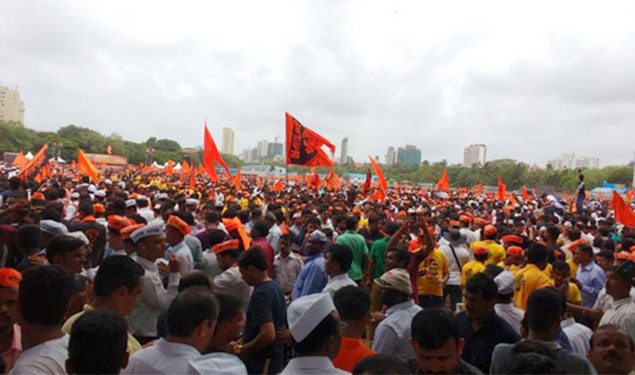
New Delhi: Reversing its stand in the court in May this year while the Triple Talaq case was being argued, it is now reported that the Modi government intended just to make amendments in the Muslim Personal Law and is not in favour of bringing a law to ban the practice.
“We would only be considering making some amendments to the Muslim Personal Law (Shariat) Application Act, 1937,” a top government source told News18.
“There is no need to pass legislation on triple talaq. The majority judgment has already made it clear that triple talaq is unconstitutional and illegal. This means if someone says triple talaq to a Muslim woman, it will not lead to divorce.
"Women can report for harassment or atrocities under existing laws. Some amendments will be made in Shariat law of 1937 as this law covers the Muslim marriages,” News18 reported quoting the unnamed source.
The question on legislation rose for the first time when the then Attorney General of India, Mukul Rohatgi, while arguing on behalf of Union of India stated that all forms of talaq must be abolished and if such a thing is done by the court then the government will indeed enact a legislation to regulate Muslim divorces.
In the minority verdict delivered by Chief Justice of India, JS Khehar and Justice Abdul Nazeer, the bench has exercised its powers under Article 142 of the Constitution and has directed the Union of India to bring out a legislation with reference to Talaq-e-Bidat.
“We hope and expect that the contemplated legislation will also take into consideration advances in Muslim ‘personal law’ – ‘Shariah’, as have been corrected by legislation the world over, even by theocratic Islamic States.
"When the British rulers in India provided succor to Muslims by legislation, and when remedial measures have been adopted by the Muslim world, we find no reason, for an independent India, to lag behind,” reads the verdict by CJI Khehar and Justice Abdul Nazeer.
However, this view finds no mention in the majority verdict. In fact Justice Kurian Joseph, a part of the majority bench, has gone to the extent in stating that, “it is not for the courts to direct for any legislation.”
“When issues of such nature come to the forefront, the discourse often takes the form of pitting religion against other constitutional rights. I believe that reconciliation between the same is possible, but the process of harmonizing different interests is within the powers of the legislature.
"Of course, this power has to be exercised within the constitutional parameters without curbing the religious freedom guaranteed under the Constitution of India. However, it is not for the Courts to direct for any legislation,” reads the verdict by Justice Kurian Joseph.
Differences over practice of Triple Talaq exist in the Islamic Sharia since the tenure of second Caliph Omar (RA). Muslim scholars and jurists argue that concurrent talaq or triple talaq in one go has never been approved by Prphet Mohammad (peace be upon him), during the tenure of first Caliph Abu Bakr (RA) and the first two years of Caliph Omar's caliphate.
Caliph Omar later approved it as punishment, scholars argue, but later on the practice was annulled by Muslim jurists. It is on this basis, the practice of concurrent talaq has been termed invalid in most of the Muslim countries.
Muslims in India, majority of them followers of Hanafi school of thought, are adamant on the invalid concurrent talaq and are fighting a case with women activists in the Supreme Court.
Interestingly, some renowned Hanafi scholars have also ruled against concurrent or triple talaq. According to the sources in the All India Muslim Personal Law Board (AIMPLB), the members fear that agreeing to any change on triple talaq would open floodgate of interference in other Sharia matters.
It is also learnt that there is a strong dissent among the members of the All India Muslim Personal Law Board (AIMLB) and especially some women members are upset over board's handling of the situation.












 | Quick links
| Quick links